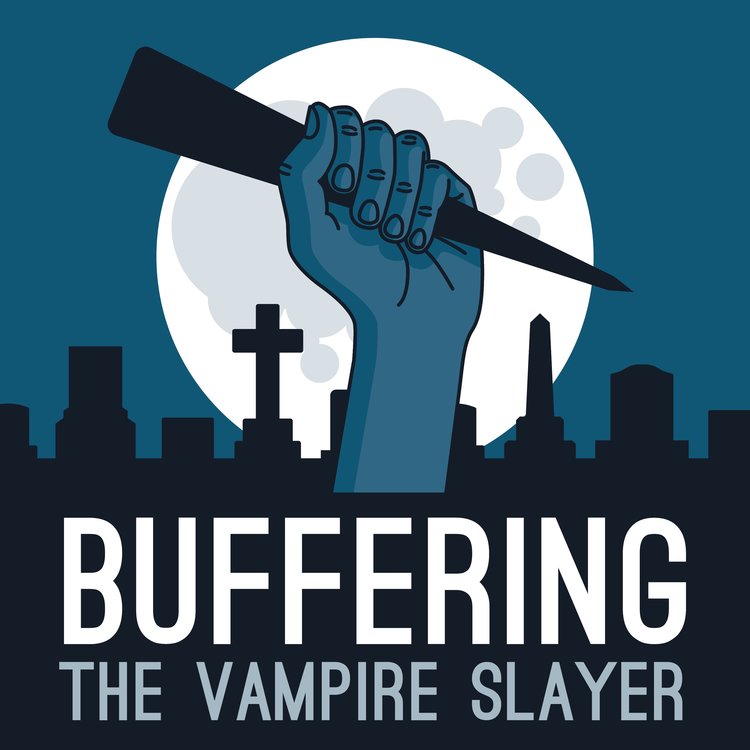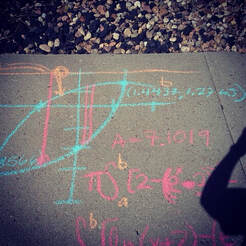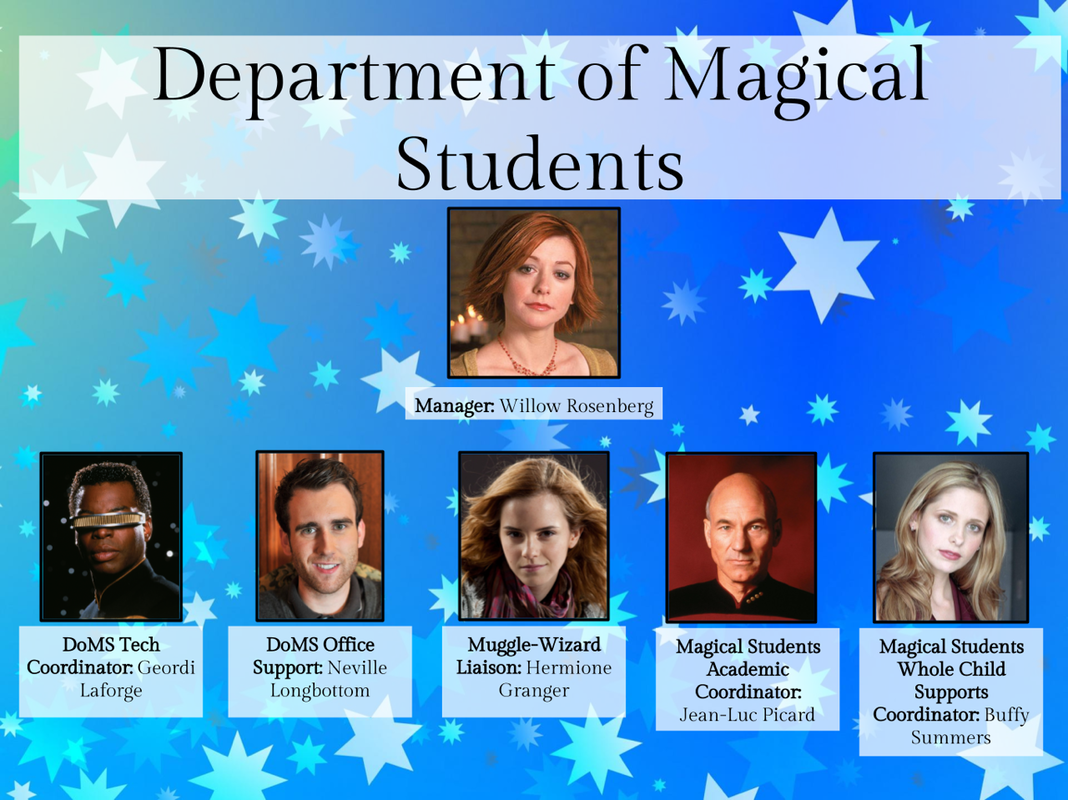|
This month, I have been celebrating and reflecting on Women's History Month more than ever. I've found myself consuming content celebrating women and reflecting on the challenges facing women on a daily basis. I've even found myself being bolder than ever in naming patriarchal practices and systems and challenging them. What makes this year different? I'm also reflecting hard on the field of education. With a female-dominated workforce, it should be no surprise that the challenges facing education are often the same challenges facing women. Just to name a few:
We should all be feminists One of my favorite TED talks is from Chimamanda Ngozi Adichie called We should all be feminists. Her perspective and delivery of the importance of feminism is masterful. She swiftly pushes against the misconception that feminism is about hating men while illustrating the microaggressions experienced by women on a daily basis that are harmful to everyone. Her book with the same title is a quick read worth digging into.
Books I've Read
My Family
This post would not be complete without mention of my family. I grew up with 4 younger sisters and parents who always told us there was absolutely nothing we couldn't do. They believed every dream we had for our future was a good and valid one simply because it was ours. My mother modeled strength and care as she managed our household. It was challenging to juggle all of the moving pieces, but she did it with immense love and honesty. My dad was far ahead of his time - truly valuing women as completely equal in value to men. At the time, this wasn't remarkable to me. It was a foundational cornerstone to my upbringing to appreciate the unique contributions each person brings to the world and not see anyone as better or worse than anyone else. I didn't understand why the other moms flocked to my dad on the sidelines during soccer games, but I get it now. The simple act of treating them with equal dignity and seeing them as equal partners in this world was a revolution all on its own and contrary to so much of what still happens in society. It's this partnership that made my parents a great team - each seeing and valuing each other's strengths and what it brought to our family. While I have done a lot of research on feminism since, it is this upbringing that keeps me grounded and holds me steady. This foundation helps me see how dismantling gender discrimination will be necessary to move forward on the issues facing the field of education and we must all do out part. I would like to close this post with a quote from Emma Watson. My dad casually referenced this quote one afternoon while discussing problematic patriarchal behaviors and how eliminating gender stereotypes frees everyone. When I laughed at how easily he pulled this reference, he didn't understand how rare it was for a man to care so deeply about gender equality, much less be able to quote a woman for rationale on why it is important. I can only hope that we see more people like this in the next generations to come. "We don't often talk about men being imprisoned by gender stereotypes... but I can see that that they are and that when they are free, things will change for women as a natural consequence. ~Emma Watson
1 Comment
Welcome to another post from my series called The Gifts of Education. In this series, I am reflecting on the skills and experiences I have been gifted over my past 12+ years in education. In this post, I wanted to share some of the ways education has made me a better communicator. I hope you enjoy this post, along with others in the series, as much as I enjoy writing them. When selecting a major for college, I would be lying if I didn't say part of the appeal of majoring in math was the lack of writing classes. It's not that I was bad at writing, I just didn't like it. I felt clumsy and struggled to put my thoughts into words that were received how I intended. I frequently felt misunderstood and found myself preferring to say nothing at all. This made it easy for my high school English teacher to persuade me to take the AP exam, despite never taking an AP course. I saw it as my ticket out of having to take any more writing classes. Luckily, I managed to pass with a 4, earning a waiver for my writing credits. I never took a single English or writing class ever again. This is not to say that I didn't have other forms of education when it came to writing. There is nothing that pushes your communication skills quite like scripting out a lesson plan focused on explaining complex mathematical concepts in ways that are both accessible and mathematically accurate. To add another layer on top of it, imagine you are teaching those mathematical concepts to multilingual learners who will also need support with the English vocabulary and syntax that accompanies these lessons. Nothing pushed me more to improve my communication than being responsible for supporting both the math and language development of my students. I learned how to communicate concisely with incredible precision in a way that built a common understanding. In education, there is no debate - it is your responsibility as the teacher to communicate in ways that are well understood by your students with all of the accompanying complexities. Those who can create productive feedback loops (also known as checks for understanding in teacher talk) are able to perfect the strategies that prove most effective. Put another way - by taking responsibility for communicating effectively and repeatedly asking for feedback on that communication, I have refined this skill into a creative art that bring me great joy and makes me a great facilitator and communicator. Thank you to all of the students and colleagues who have given me feedback over the years to help me become the communicator I am today. While I will always have a lot to learn, I know how much I have grown. Reflecting over the years, below are some of my most proud and favorite moments that come to mind when it comes to communication and some side-note commentary:
Overall, I've learned that communication can take many forms and the most important thing is that you find what works for the idea you are trying to convey with your target audience. Don't be afraid to play with different formats - text, tables, visuals, videos, talking in person, etc. If you're unsure, build in checks for understanding to help yourself improve and let people know effective communication is important to you. As any educator will tell you, feedback is a great teacher, as long as we take the time to listen.
Welcome to the second post in my series that I'm lovingly calling the Gifts of Education. While my post on creativity focused on a more obvious change education brought to my life, I wanted to focus my second post on a less obvious skill that I have gained: the ability to form strong, productive relationships. I hope you enjoy it. A few years ago, my parents brought me some of my old belongings in boxes, many from high school. While I rarely wrote in my diary on a regular basis, I would periodically provide updates on the highlights of that current point in my life. One entry had the following line -
Now, I imagine at least some readers (especially educators) are now thinking 'If you didn't have strong relationship building skills, how on EARTH did you make it as a teacher?' It is only in hindsight that I'm able to offer an explanation for why I had a knack for building relationships with students, despite my lack of practice in my younger years.
This takes me to my first job working with ONLY adults... no students to buffer my social awkwardness, no class bell to help me escape stressful social situations with colleagues. I was on my own with just 'grown ups' in the land of cubicles and meeting rooms. As the Professional Learning Specialist for the Division of Student Equity and Opportunity, I was primarily tasked with improving the quality of professional learning across all teams - many supporting areas where I had little to no expertise. While the task seemed overwhelming at first, my manager started me off with the perfect first assignment: build relationships with each of the departments I supported. My ability to get projects (and potentially keep my job) was dependent upon the department teams wanting to work with me and finding my support valuable. Based upon my experience with students, I knew that strong relationships would be crucial to my success. While I had never attempted something like this before, I did what any good mathematician would do in this kind of situation: rework the problem a little bit until it resembled something I've already solved and then 'return to case 1' (aka, do what I did before). I expanded my previous solution to include adults, which provided me the following amended approach:
This leads me to the brief exchange I had with a teacher that I used to coach. He probably doesn't remember it, but I will remember this conversation for the rest of my life as the moment I tangibly understood my approach to building relationships. We ran into each other going opposite directions in the school stairwell and he stopped me.
I am both sad and incredibly excited to share that I have decided to leave the K-12 education system and pursue other opportunities that allow me to use the many skills I have gained over the past twelve+ years. As I seek my next adventure, it felt important to reflect on how education has shaped me both professionally and personally. My hope is to write a series of these posts to both hold the past dear to my heart while opening up to the possibilities ahead. Gift #1: Creativity
It was hard to ignore the fact by this point - I mostly created content for a living and started coloring my hair with bold, bright colors to match my love for elegant and eye-catching designs. Whether I had always been a creative person and didn't know it or education had brought out my creative side, I am incredibly grateful that I was able to cultivate this part of myself. It has brought so much joy to my work and my life and I can't imagine not having this core part of my identity. Thank you for reading my first post of this series. It feels good to blog again and use this platform as a means for reflection. I hope you'll join me for my upcoming posts, where I plan to reflect on the ways that my work in education has gifted me with strengths in relationship-building, collaboration, systems-design, communication, and more.
|
AuthorMattea Garcia is a human-centered problem-solver dedicated to improving learning and technology experiences. This blog is dedicated to reflections on leadership, educational technology, instructional coaching, educational equity, and more. Archives
June 2022
Categories |



 RSS Feed
RSS Feed
